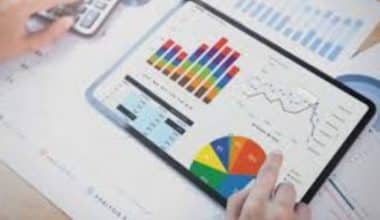Effective budgeting is an essential tool for managing one’s finances. Everyone, regardless of income level or financial goals, can benefit from a structured personal budget. A personal budget helps in tracking your income, expenses, and savings. This ensures you use your money wisely and to your financial objectives. You may ask: how can I do it? This guide covers what a personal budget is, discusses key strategies, and provides software app(s) and a template to create and maintain one. So, whether you want to pay off debt, save for a big purchase, or understand your financial health, this guide will equip you with the necessary knowledge and tools to achieve your financial goals through effective budgeting.
What Is The Personal Budget?
A personal budget is a financial plan that helps individuals manage their income and expenses effectively. It is a tool that allows people to track their spending habits, prioritize their financial goals, and make necessary adjustments to achieve those goals. The main objective of a personal budget is to ensure individuals live within their means and make smart financial decisions.
Creating a personal budget involves tracking all sources of income, such as salary, freelance work, or rental income, and identifying all expenses. This includes fixed costs like rent and utilities, as well as variable costs like groceries and entertainment. By comparing income and expenses, you can determine if you have a surplus or deficit. This information is crucial in making informed financial decisions, such as cutting back on unnecessary or identifying areas where you can save more.
Ultimately, a personal budget helps individuals gain control over their financial situation, reduce debt, and work towards future financial goals. That’s saving for retirement or purchasing a home.
What Are The 3 Types Of Budgets?
The three main types of budgets are balanced, surplus, and deficit budgets.
#1. Balanced Budget
A balanced budget is a financial plan in which the income or revenue matches the expenses or expenditures. It essentially means that there is an equilibrium between the money earned and the money spent.
This budgeting approach aims to create firmness and ensure your spending does not exceed income. However, it’s useful in times of economic uncertainty, as it promotes financial management and prevents the accumulation of debts.
#2. Surplus Budget
A surplus budget occurs when the revenue or income exceeds the expenditure. This happens when you earn more than you spend within a period. Surplus budgets often result from effective financial management, increased revenue streams, or reduced expenses.
Surplus budgets are advantageous as they help in saving, investing, or paying off debts. Additionally, you can establish emergency funds, expand operations, or distribute profits among stakeholders.
#3. Deficit Budget
A deficit budget is a financial plan in which the expenditure exceeds the revenue or income. It typically leads to a financial shortfall as expenses outstrip available funds. In addition, deficit budgets commonly arise when you incur unexpected costs or undergo economic challenges.
What Are The Four Components To A Personal Budget?
A personal budget is a valuable idea that allows people to use an app to manage finances effectively and achieve financial goals. However, the four essential components are income, expenses, savings, and debt.
- First, income includes all sources of money coming into your possession, such as salary, wages, bonuses, or investments. It is crucial to accurately calculate and record the total income to know available funds.
- Secondly, expenses encompass all the money spent on various items or services. Meanwhile, expenses can be fixed expenses, such as rent or mortgage payments, and variable expenses, such as groceries or entertainment. Additionally, tracking expenses helps you identify areas you can cut back and save money.
- Thirdly, savings involves setting aside money for future needs or goals. This can include savings for emergencies, retirement, or education. Having a specific portion of income for savings helps build financial security and achieve long-term objectives.
- And lastly, debt refers to any money owed to creditors or financial institutions. Always include debt payments in your budget to ensure timely repayments and avoid additional interest charges.
What Software App Can You Use For Your Personal Budget?
When managing your personal budget, several software apps can help you stay organized and on track. Some of them are as follows:
#1. Mint
One popular software app for a personal budget is Mint. It’s a free web-based platform that allows users to securely link their bank accounts, credit cards, and other financial accounts. Mint automatically tracks expenses, generates customized budgets, and provides real-time updates on financial goals.
Additionally, users can receive alerts for low balances, unusual spending patterns, and upcoming bills. With its user-friendly interface and comprehensive features, Mint is an excellent personal budget app for people who want a convenient way to track and manage their budgets.
#2. YNAB
Another personal budget software app you can use is You Need a Budget (YNAB). YNAB is a subscription-based app that offers a fresh approach to budgeting by focusing on proactive planning and rule-based spending. The app helps users set financial goals, create budgets, and provides real-time tracking of expenses and income.
Additionally, YNAB offers educational resources and personalized support to users. This helps you develop healthy money habits and achieve your financial goals. With its emphasis on intentional spending and planning, YNAB is a powerful app to control and improve your financial well-being.
#3. Goodbudget
Goodbudget is a user-friendly personal budget software app. It allows individuals to track their income, expenses, and savings orderly. One of the key features of Goodbudget is its envelope-based budgeting system.
However, users can create virtual envelopes for different budget categories, such as groceries, transportation, and entertainment. They can then allocate a certain amount to each envelope, giving them a visual representation of their spending habits and available funds.
This app also provides users with real-time updates and notifications to help them stay on top of their finances. With its intuitive interface and comprehensive features, Goodbudget is a valuable software for effectively managing personal finances.
#4. Quicken
Quicken is a popular personal budget software app that offers many features to help users keep their finances in order. It allows individuals to monitor their income, expenses, investments, loans, and more all in one place.
One of the standout features of Quicken is its ability to automatically categorize transactions, saving users time and effort. It also provides detailed reports and graphs to visualize spending patterns and identify areas to save money.
Is A Personal Budget Template Necessary?
Having a personal budget template can be extremely valuable in managing your finances effectively. It provides a structured way to track and analyze your income and expenses, helping you stay on top of your financial goals. A budget template allows you to plan and allocate your money wisely. That’s ensuring your spending aligns with your priorities and overall financial plan. It provides a clear overview of your financial situation, expenses to reduce and save more. Additionally, a budget template helps you stay disciplined and accountable, as you can easily monitor your progress and make adjustments.
Furthermore, a personal budget template also helps in minimizing financial stress and providing peace of mind. For instance, observing your income and expenses can avoid unnecessary debt and reduce financial uncertainty. You’ll identify potential obstacles to your financial goals and plan to overcome them. Moreover, a personal budget template helps in realistic financial targets and milestones.
Overall, a personal budget template is essential for everyone to make informed financial decisions and work towards a more secure financial future.
What Would You Include In A Personal Budget?
When creating a personal budget, include various categories to manage your finances effectively. Firstly, add your fixed expenses such as rent or mortgage payments, utility bills, insurance premiums, and loan payments. These expenses are consistent each month and you should prioritize them to ensure you pay on time.
Additionally, allocate a portion of your budget to variable expenses. These expenses can fluctuate from month to month and include groceries, transportation costs, entertainment, and dining out. Moreover, tracking these expenses allows you to remove some spending and save money.
What Are 5 Key Points To Personal Budgeting?
Here are five key points to keep in mind.
- First, track your expenses. This means keeping a record of all your expenditures, whether it’s as small as a cup of coffee or as large as a car payment. Doing this will help you spend wisely and reduce some things.
- Then, set financial goals. Without clear goals, it is challenging to create an effective budget. Whether your goal is to save for a down payment on a house or pay off debt, having specific objectives allows you to allocate your income accordingly.
- Additionally, create a realistic budget. Be honest about your income and expenses, and do not overestimate or underestimate either. This will help you stick to your budget and achieve your financial goals.
- After that, prioritize savings. Many financial experts recommend saving at least 10% of your income. By making savings a priority, you build a safety net for unforeseen expenses and work toward long-term financial stability.
- Lastly, review and adjust your budget regularly. Life circumstances and expenses change over time, so always check your budget.
How Do You Prepare A Personal Budget?
Preparing a personal budget is an essential step to financial success.
- To start, gather all relevant financial information. This includes income sources such as salary, side gigs, or investments. It also includes regular expenses such as rent or mortgage payments, utility bills, groceries, transportation costs, and debt repayments.
- Once you have a comprehensive overview of your earnings and expenses, you can create different categories and allocate a specific amount to each. This helps you prioritize your spending and avoid unnecessary splurges. Meanwhile, set aside some funds for emergency savings or future goals, such as retirement or a vacation.
- Finally, check and adjust your budget to align with your financial goals and circumstances.
What Is The Purpose Of A Personal Budget?
The main purpose is to keep your spending in check and makes sure your savings are on track for the future.
NOTE: To effectively track your spending and manage your budget, you should utilize various tools and techniques. Financial software or mobile apps can assist in keeping track of your expenses, categorizing them, and providing real-time updates. Also, creating a spreadsheet or using a budgeting template can help record and analyze your financial data. Another crucial aspect is monitoring your progress and making adjustments as needed. This involves reviewing your spending habits, identifying areas to cut off, and finding ways to increase your savings.
Final Thoughts
A personal budget is an essential tool for effective budgeting and financial management. It helps you monitor your income and expenses. With the above tips, you can prioritize your expenses, track your spending, and save for the future.



![[Revealed] 9 Steps to Selling Your Business in Australia](https://businessyield.com/wp-content/uploads/2021/10/Revealed-9-Steps-to-Selling-Your-Business-in-Australia-380x220.jpg)


